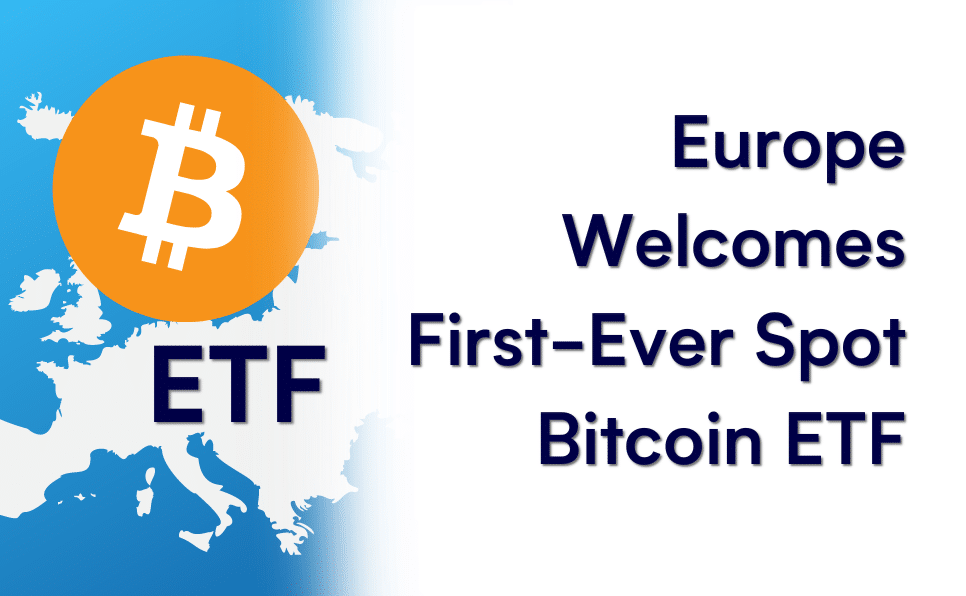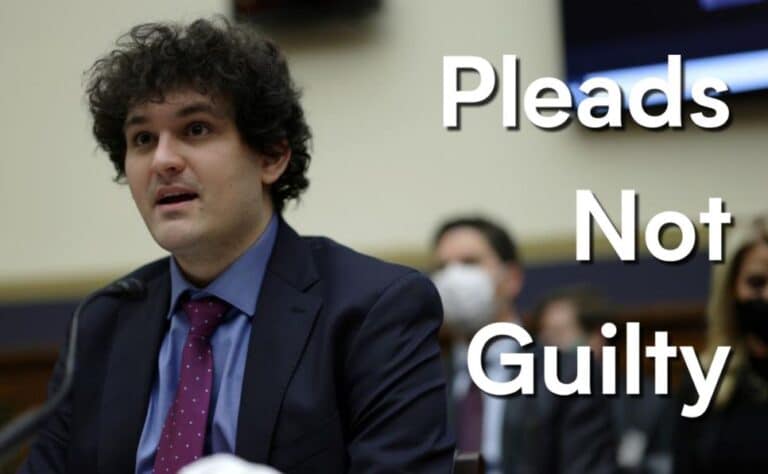Welcome to “This Week in Crypto,” your source for the latest developments and trends in the world of cryptocurrencies and blockchain technology. In this edition, we’ll explore Europe’s groundbreaking moment with the launch of its first-ever spot Bitcoin ETF by Jacobi Asset Management, providing investors a new gateway to the cryptocurrency market. We’ll also delve into OpenSea’s shift in handling creator royalty fees for NFTs, and how it reflects the evolving dynamics of the NFT industry. Additionally, we’ll take a closer look at how Bitcoin’s value is surging in Argentina amidst escalating inflation, offering citizens a potential hedge against the country’s volatile economic landscape. Stay tuned for these stories and more as we uncover the pulse of the crypto world over the past week.
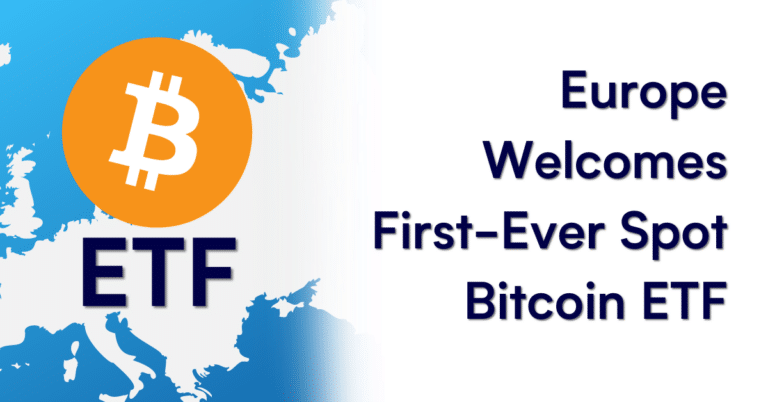
Europe Welcomes First-Ever Spot Bitcoin ETF on Euronext Amsterdam Exchange
London-based digital asset management firm Jacobi Asset Management has launched Europe’s first-ever spot Bitcoin ETF on the Euronext Amsterdam stock exchange, marking a significant development in the region’s cryptocurrency investment landscape. The ETF, known as Jacobi FT Wilshire Bitcoin ETF and trading under the ticker BCOIN, was initially planned to launch in 2022 but faced delays.
This spot Bitcoin ETF is designed to offer investors exposure to a financial product physically backed by BTC, allowing them to participate in the Bitcoin market without owning or directly holding the underlying asset. The ETF’s custodial aspects will be managed by Fidelity Digital Assets. Additionally, the fund emphasizes its environmentally and socially friendly nature by incorporating a renewable energy certificate (REC) mechanism that assesses the energy usage of the Bitcoin network.
The launch of the Jacobi Bitcoin ETF marks Europe’s progression in cryptocurrency investment products, highlighting the region’s approach in contrast to the United States, where similar spot Bitcoin ETF applications are awaiting regulatory approval. The ETF’s debut follows the introduction of a Bitcoin Equities ETF on the same exchange by Melanion Capital in June 2023, showcasing the growing interest and diversification in cryptocurrency-linked investment options.
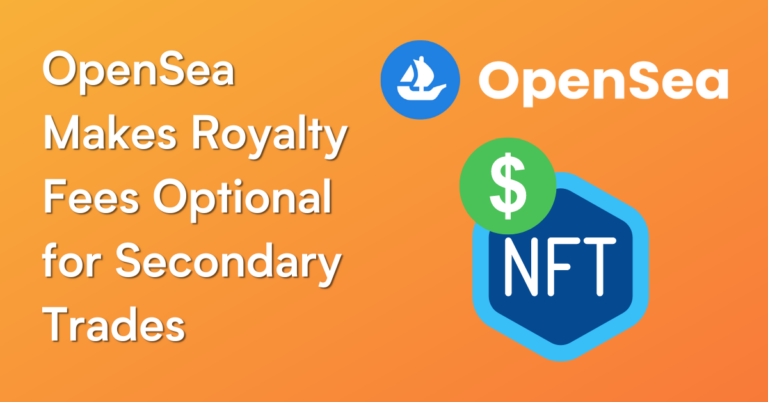
NFT Marketplace OpenSea Makes Creator Royalty Fees Optional for Secondary Trades
NFT marketplace OpenSea has announced a significant change in its approach to creator royalty fees for secondary sales of NFTs. Starting August 31, artists listing new projects on OpenSea will no longer be able to enforce creator royalty fees on buyers for secondary sales of their NFTs. Instead, artists will only be able to indicate their preferred creator fee, which buyers can choose to pay as a tip. This shift marks a departure from the previous practice of enforcing these fees, which typically ranged from 2.5% to 10% and were collected by creators when their NFTs were resold.
Existing collections on non-Ethereum blockchains and projects that utilized OpenSea’s Operator Filter—a tool that enforced creator fees on OpenSea for collections not sold on competing platforms—will have the option to guarantee creator fees until February 29, 2024. Beyond that date, NFT creator fees will become entirely optional platform-wide. OpenSea’s CEO, Devin Finzer, clarified that creator fees themselves are not being eliminated; rather, the change involves the cessation of their unilateral enforcement.
This move by OpenSea reflects the evolving landscape of the NFT industry, driven by the emergence of competitive marketplaces that have adopted alternative approaches to creator royalties. This decision comes as OpenSea faced increased competition from platforms like Blur, which employed a free-market strategy and achieved high trading volumes. OpenSea’s decision to transition away from enforced creator fees illustrates its ongoing effort to remain competitive while navigating the changing dynamics of the NFT space, which includes a shifting focus on the rights of creators.
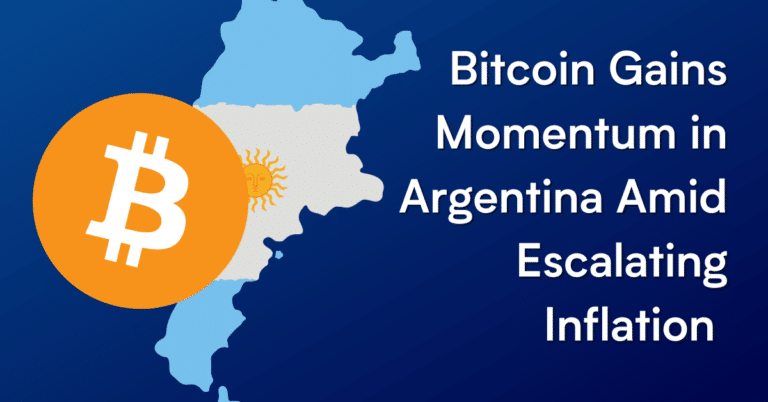
Bitcoin Gains Momentum in Argentina Amidst Escalating Inflation and Economic Uncertainty
Bitcoin’s value surged to unprecedented heights following the victory of a presidential candidate supportive of Bitcoin in Argentina’s primary election. The cryptocurrency’s price reached 10 million Argentine pesos (ARS) per BTC last week, as outlined by CoinGecko data. It has now settled down at around 9 million ARS as of the time of writing. This surge comes amidst escalating inflation and the devaluation of the local currency, underscoring Bitcoin’s potential as an alternative store of value during times of economic uncertainty.
While Bitcoin has experienced remarkable growth within Argentina, its global trajectory has been less favorable. Notably, it has declined by 3.7% against the U.S. dollar since August 14th and has faced a nearly 5% drop over the past month. However, this trend isn’t unique to Argentina. Similar situations have arisen in countries like Turkey, which grapples with a high inflation rate of nearly 50% as of July 2023. In Turkey, Bitcoin also surged to near all-time highs, indicating its role as a potential hedge against economic instability.
Argentina’s notable adoption rate of cryptocurrencies further substantiates the growing interest in digital assets within the country. According to Chainalysis, Argentina ranks among the top ten globally for cryptocurrency adoption rates, illustrating a populace increasingly drawn to alternative assets in response to financial volatility. This confluence of factors underscores Bitcoin’s evolving significance in Argentina’s economic landscape.
